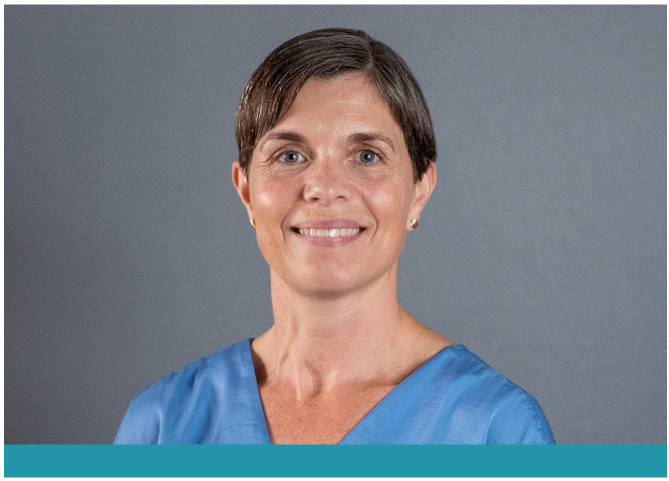

When citizens drive development in Corinth and Haastrup in Funen
How do the citizens of a village — and not just external experts — drive strategic long-term development? Several villages in Funen are in the process of creating changes and trial actions that feed into the future development plan.
Active villages and quality of life outside the big cities are part of the vision to create a 'Denmark in balance'. One of the major challenges to balance this balance is that the approach to village development has been too centralised. Experience shows time and time again that central plans and strategies alone all too often have no effect because they do not originate from the local community. Development requires strong local ownership, local actions and the desire to collaborate in new ways in the local population.
Researcher in rural development, Hanne Wittorff Tanvig, shows in her research that individual communities need to be activated in the development of their living conditions in the villages. Neither experts from the municipality nor consulting firms can initiate what is needed. Culture is not something that builds up overnight. In addition, there needs to be a continuous commitment from the villagers. Hanne Wittorff Tanvig is therefore also critical of the usual planning strategy, which is carried out from the top down, without the participation of citizens. In her research, she has argued that for development in villages to succeed, it must come from a citizen-driven engagement;
“The villagers themselves stand behind the fact that there is life in the villages. Without active action, one goes into oblivion. [...] Contrary to how the ruling power, planners and consulting firms think. They think you can make frames — and that it has to come from the outside.”
Hanne Wittorff Tanvig's point is that a strong village community provides for even basic services, such as a well-functioning commercial and business community. However, the need for process support and external disruption is central if villages are to achieve the objectives of strategic development:
“The villages might just need a little kick. There is something that needs to be triggered — and someone to do it. [...] It can help eliminate home blindness and ensure that the right people are involved. The task lies in getting village chiefs to spread the responsibility and thus to break habits and create new ideas. But we need to tone down the classic advisor profile and instead have a coach function.”
Such cooperation has just emerged in Faaborg-Midtfyn Municipality, which together with the umbrella organization Fynsland, which is a collection of 21 local councils, has sought financial resources through the Rural Pool to support the development process for the villages of Haastrup and Corinth. The aim is to strengthen those villages in the municipality that want to develop themselves through trial actions in the form of testing concrete initiatives in a short period of time, which are subsequently evaluated and contribute to focusing the villages' strategic development tracks.
This means that village development is driven by local forces that have organized themselves into working groups and set the strategic goals themselves and drive the trial actions. Faaborg-Midtfyn Municipality supports the villages' work with professional sparring, while consultants from Resonans contribute process support together with anthropologists and landscape architects from SLA, who help the villages identify the villages' strengths and challenges. Locally in the villages, efforts are coalesced around a steering group made up of committed citizens who will boost the villages' development. Mette Abrahamsen, citizen and chair of the steering group of Corinth, says of the organization:
“There has been talk for several years that a new development plan is needed in the area. There was support for this — but the message was clear: we need help with the process.”
Both Mette Abrahamsen and Michaël Desveaux, citizen and chairman of the steering group of Haastrup, are aware that it is difficult to manage the different interests of citizens into a cooperation that has to do more than just deal with problems here and now. Here it is Michaël who explains about the challenges that those in the village need help to overcome:
“It's easy to get people to express their opinion, but it's hard to get people to do anything. In the big meetings that we start with the flower boxes and that there are some young people who hog. It's hard to lift the talk to where we'll be in 10 years. That's where it's really cool to spar with external forces about what it is we want overall — and what are the tracks we need to get through. It helps us to focus on what is important. It's important to have an anchor out in the future. But the townspeople also get hooked if we're only in the overall tier.”
One of the strategic development tracks that Haastrup has set in motion is to create more biodiversity and a more cohesive nature. In late August, the two steering groups gathered at a kick-off workshop. The citizens of Haastrup developed together a trial act to start the village's development on the short track. The trial operation involves over 100 days to test the development of a new path system with pop-up communities with the working title Communities Naturally. The citizens of Corinth have also set in motion several trials, including the idea of Go to Corinthwhere the local associations collaborate on activities so that children and young people do not have to choose one association, but can go to several different activities across the different leisure offerings.
At the workshop, Mayor Hans Stavnsager of Faaborg-Midtfyn Municipality acknowledged the villages' strong capacity for action — and that it is crucial to have a local commitment to take the first active steps into practice. The incoming city council will be presented with the results of the trial actions and the long-term development plans by the end of the year. So ongoing efforts can be picked up and plans made for the next steps. Although the villages can act in everyday life, it is also important that both the political and administrative levels in Faaborg-Midtfyn Municipality can follow up with strategic priorities and possible economic investments.
More articles
We write articles that can help top managers, boards, employees, citizens and business actors to succeed better - both together and separately.



Get the latest news on strategy implementation
If you want to keep up with the latest trends and developments in strategy realization, our LinkedIn page is the right place for you.
Visit us on LinkedIn